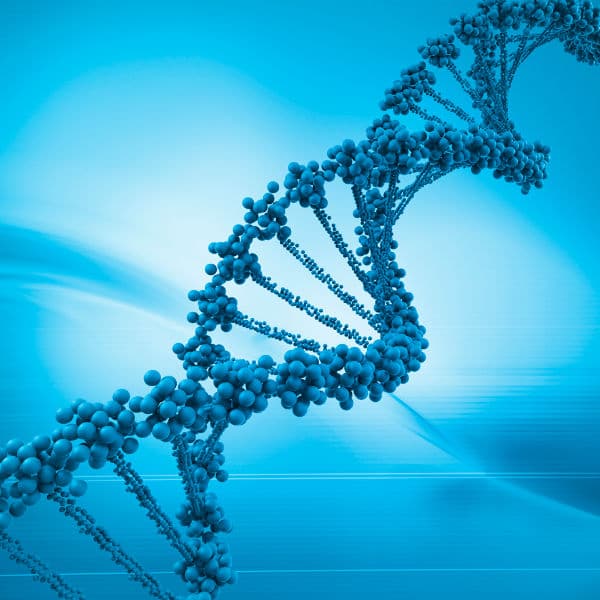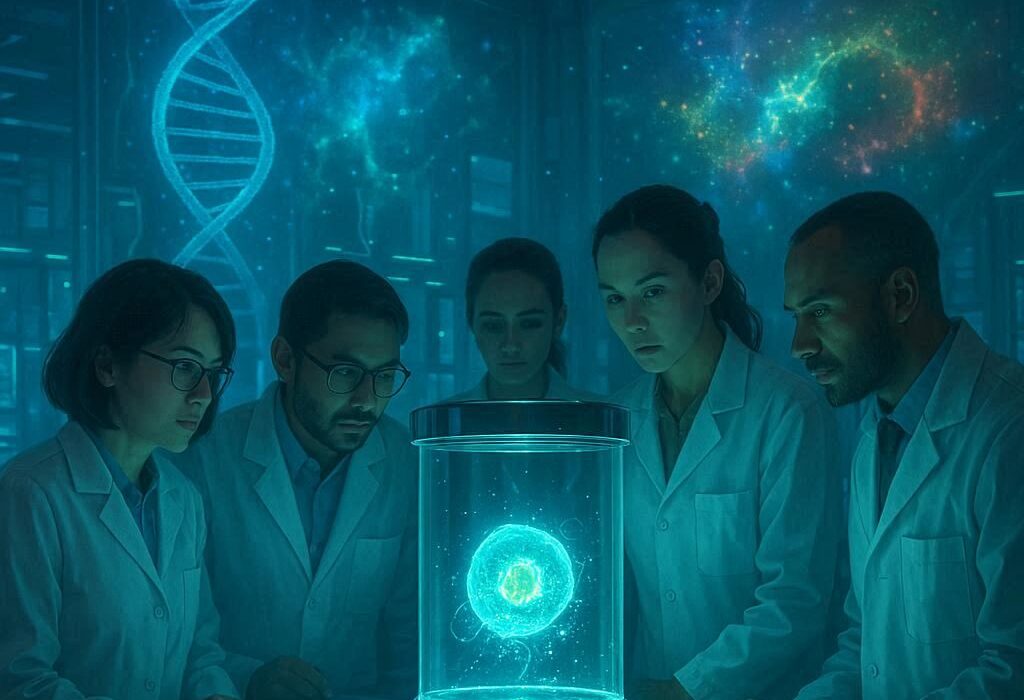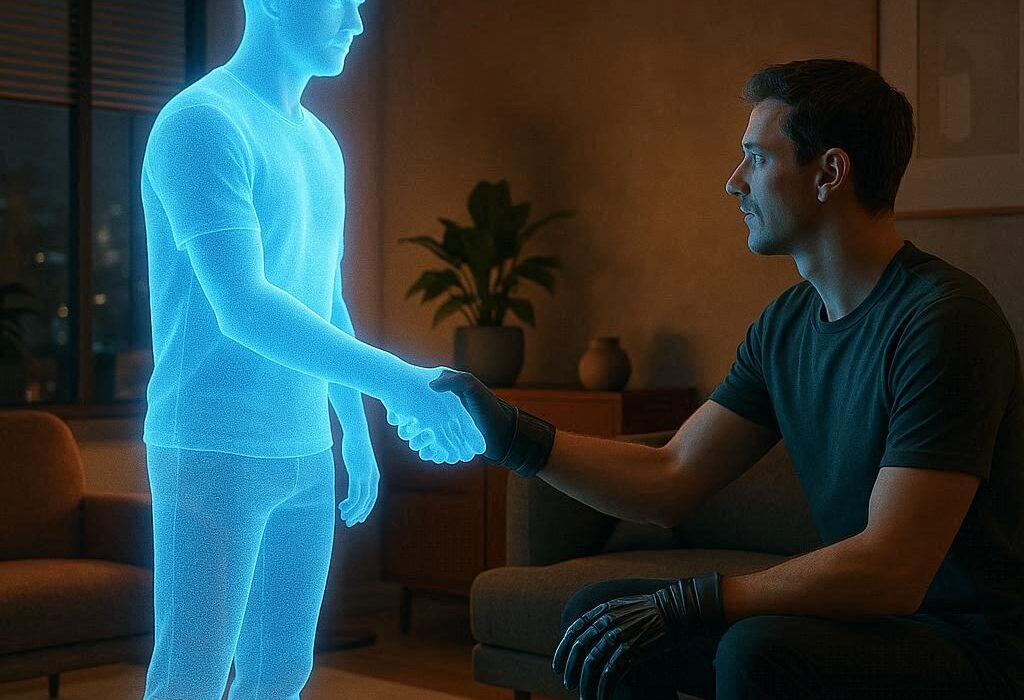For thousands of years, human beings have accepted one simple truth: the traits of our children are left to chance. From the color of their eyes to the sharpness of their intelligence, from their athletic potential to their vulnerability to disease, the genetic lottery has been outside our control. Parents have loved and nurtured their children regardless, embracing both strengths and struggles as part of the human story. But in the 21st century, this age-old truth is being shaken. A revolution in genetics is unfolding that could, in the near future, give parents the power to not only prevent genetic diseases but also to shape the abilities, talents, and even personality traits of their children.
This future feels both exhilarating and unsettling. On one hand, it promises an end to suffering caused by inherited diseases. On the other, it challenges the very essence of what it means to be human. If we can choose our children’s abilities, will we still value them for who they are, or only for who we want them to be? This tension sits at the heart of modern genetics. The science is advancing rapidly, and society must grapple with the consequences of its power.
From Dreams of Healing to Dreams of Enhancement
The journey to this future began with humble but profound goals: healing, not enhancing. For decades, scientists sought to understand the genetic roots of disease. They studied DNA, the double-helix molecule carrying the instructions for life, and discovered that errors in this code could lead to devastating illnesses like cystic fibrosis, Huntington’s disease, and sickle cell anemia.
The mapping of the human genome at the dawn of the new millennium was a watershed moment. Suddenly, the genetic instructions of humanity were laid bare, and researchers gained an unprecedented ability to search for the causes of disease. The dream was clear: if faulty genes could be corrected, millions of lives could be saved.
Enter technologies like CRISPR-Cas9, a gene-editing tool that allows scientists to cut, remove, and rewrite DNA with extraordinary precision. Initially, CRISPR was celebrated as a weapon against suffering. It offered the possibility of eradicating inherited diseases once thought inevitable. But as the science advanced, an unsettling realization emerged: the same tools used to correct disease could, in theory, be used to enhance abilities. If we can edit genes to prevent blindness, could we also edit them to sharpen vision? If we can reduce the risk of Alzheimer’s, could we also enhance memory? The line between healing and enhancing began to blur.
The Science of Designing Potential
To understand how genetic choices for children might work, one must first grasp the basics of genetics. Each of us carries around 20,000 genes, inherited from our parents, which influence everything from physical traits to biological functions. Some traits, like eye color, are relatively simple, influenced by a handful of genes. Others, like intelligence, musical talent, or athletic ability, are complex, shaped by thousands of genes interacting with one another and with the environment.
Already, scientists have identified many of the genetic variants that contribute to physical traits and health risks. Genetic screening can tell prospective parents the likelihood that their child will inherit certain conditions. In the future, these screenings could expand to offer predictions about abilities: the probability that a child may have a high aptitude for mathematics, superior spatial awareness, or an unusual gift for music.
Beyond prediction lies the more radical possibility of selection and editing. Embryo selection could allow parents to choose, from several embryos created through in vitro fertilization, the one with the genetic profile most aligned with their hopes. Gene editing could go further, rewriting DNA before birth to alter the course of a child’s development. While the science of enhancing complex traits is still in its infancy, the trajectory is unmistakable.
The Promise of Genetic Choice
There is no denying the immense promise of such technology. Imagine a world where parents could ensure their children are free from devastating illnesses like muscular dystrophy or Tay-Sachs disease. Imagine eliminating hereditary cancers or protecting against conditions like heart disease and diabetes before they even take root. The emotional and financial relief such progress could bring to families is immeasurable.
But beyond health, the idea of enhancing abilities carries its own allure. Parents have always dreamed of giving their children every possible advantage in life. Today, they do so through education, nutrition, and social opportunities. Tomorrow, they might do so at the level of DNA. A child could be given stronger bones, sharper cognitive skills, or a heightened immune system, giving them a head start in a competitive world. In this light, genetic choice could be seen as simply another way parents invest in their children’s future.
The Shadow of Ethical Dilemmas
Yet the promise comes with shadows that cannot be ignored. The ability to choose abilities raises profound ethical dilemmas. What happens when parents are no longer simply nurturing life, but designing it?
One concern is equity. If genetic enhancement is expensive, it may only be available to the wealthy, creating a society where the privileged literally have “better genes” than the poor. The gap between rich and poor could widen into a chasm, with inequality written into the biological fabric of future generations.
Another concern is diversity. Human variation is a strength, not a weakness. It enriches our cultures, inspires creativity, and drives evolution. If society begins to favor certain traits—height, intelligence, beauty, athleticism—we risk narrowing the spectrum of human diversity. Would we inadvertently create a homogenized population, stripping away the uniqueness that makes each individual precious?
Then there is the question of freedom. A child does not choose the abilities their parents design. If a parent selects genes for high intelligence but the child grows up with no interest in academics, does that child feel pressured to live up to expectations they never chose? In this sense, genetic choice risks turning children into projects rather than people.
The Ghost of History
The idea of choosing traits for future generations carries a heavy historical weight. The eugenics movements of the 19th and 20th centuries sought to “improve” humanity by controlling who could reproduce. Though pseudoscientific and morally abhorrent, these movements remind us of the dangers of believing we can decide which lives are worth living.
Modern genetic technologies differ in intent—focused on individual choice rather than state control—but the echoes of history cannot be ignored. As we move forward, we must remain vigilant to ensure that the pursuit of healthier, stronger children does not slip into the dark terrain of valuing some lives more than others.
The Emotional Landscape of Choice
Imagine standing in a fertility clinic of the future. On a screen, a series of embryos is displayed, each accompanied by a detailed genetic profile. One embryo is predicted to have a low risk of disease but average cognitive potential. Another shows high aptitude for mathematics but a predisposition to anxiety. Another carries strong athletic genes but a shorter projected lifespan.
The decision is yours: which embryo becomes your child?
The weight of such a choice is staggering. Parents may find themselves burdened not only with the hope of giving their children the best possible life but also with the fear of making the “wrong” choice. Guilt and regret could take on new forms: Did we choose the embryo that would suffer less? Did we sacrifice kindness for intelligence? Did we prioritize potential over joy?
These emotional complexities remind us that genetics is not only a scientific revolution but also a deeply human one, reshaping the very act of becoming a parent.
The Interplay of Genes and Environment
It is important to remember that genes are not destiny. A child’s abilities are not determined solely by DNA but shaped by an intricate dance between genes and environment. A genetic predisposition for musical ability means little without access to instruments and encouragement. A gene associated with intelligence requires nourishment, love, and opportunity to flourish.
This interplay underscores a vital truth: even in a world of genetic choice, parenting will remain an art of love, patience, and guidance. DNA may set the stage, but the play of life is written by countless forces beyond our control.
The Future: A Fork in the Road
Where does this lead us? The future of genetics is a fork in the road, one path leading to incredible advances in health and human potential, the other to risks of inequality, ethical dilemmas, and loss of diversity.
Perhaps the most realistic vision lies somewhere in between. In the coming decades, we may see widespread acceptance of genetic editing for disease prevention but resistance to enhancement of abilities. Regulations may draw a line between healing and designing, though those lines may blur as society evolves.
Public dialogue will be essential. The future of genetics is not solely in the hands of scientists, but in the hearts of humanity. We must ask not only what we can do, but what we should do.
Science Meets Philosophy
At its core, the debate about genetic choice is not just about science—it is about philosophy. What does it mean to be human? Is our value found in our abilities, or in our capacity to love, struggle, and grow? Do we honor our children by shaping them, or by accepting them as they come?
These are questions without easy answers. But as the science of genetics advances, we cannot afford to ignore them. They demand reflection, compassion, and wisdom.
Conclusion: The Future We Choose
The future of genetics is a mirror reflecting our deepest hopes and fears. It holds the power to eliminate suffering, to unlock potential, and to redefine the human experience. But it also carries risks that could reshape society in ways we may not desire.
The ability to choose our children’s abilities is not just a scientific question—it is a moral one, a human one. In the end, the story of genetics will not be written in laboratories alone. It will be written in the choices we make as a global community about how to use the power we have unlocked.
So, when the time comes, what will we choose?






